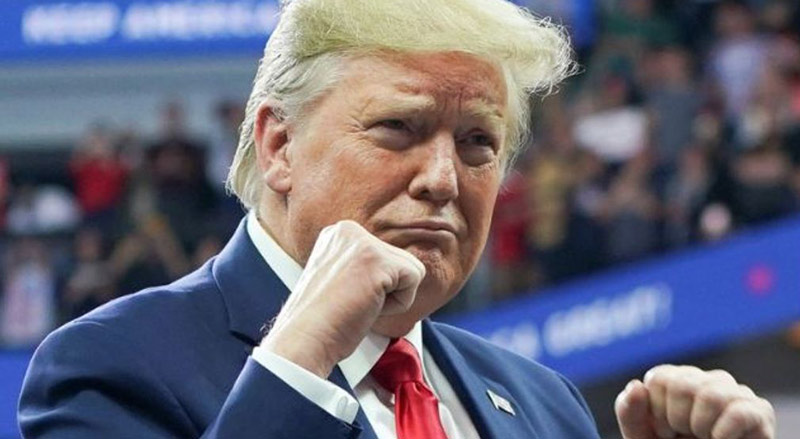Benefit From Understanding That the Influence of the USA Empire is Peaking
There is a change in the global power base underway and with this change in the USA are feelings of doom and gloom, malaise, and a sense of loss with a lower standard of living. A lot of the churn and turmoil in the marketplace is associated with this change. It is this adjustment to a new global reality that is the basis for the peaking of the influence of the USA Empire.
In order to understand and develop a perspective of the magnitude and drivers of the economic change underway, an article was published titled “Consider Using These 5 E-Valuation Factors to Avoid the Financial Rip Tide and Thrive.”
In this article, I am going to describe in more detail one of the 5 Evaluation Factors related to “the (USA) Empire is peaking out” and introduce some data points that illustrate the peaking of the (USA) Empire, suggest some areas of focus to prevent parochialism, and highlight ways to thrive economically as the emerging markets embrace trade and technology.
I will start by providing below the 3 greatest power shifts in modern history. 1st is the rise of the western world around the 15th century that produced the world as we know it with science and technology, commerce and capitalism, and the agricultural and industrial revolutions.
The 2nd shift took place 400 years later with the rise of the USA as it became the most powerful nation in the world with the past 20 years in a role as the only superpower… essentially getting its way in all areas and largely unchallenged. The next power shift is the 3rd in modern history and it is currently underway as the global economy has accelerated the “rise of the rest” based on an unprecedented international climate of peace and prosperity.
While many are concerned with terrorism and there still are rogue states but in reality, it is the most peaceful time on earth, relatively speaking. However, it is an unsettling prospect for Americans, as evident from this list of economic achievements of the past decade:
– the world’s largest building is in Taipei and soon it will be in Dubai (not Chicago or New York City);
– the world’s largest publicly traded company is in Taipei;
– the world’s biggest refinery is being constructed not in Texas or Louisiana but in India;
– the world’s largest airplane is built in Europe (not Seattle);
– the world’s largest investment is in Abu Dhabi;
– the world’s biggest movie industry is not in LA but in Bollywood (India);
– the world’s largest Ferris wheel is in Singapore; and
– the world’s largest casino is in Macao (not Las Vegas).
And, according to Antoine van Agtmael in “The Emerging Markets Century”, none of the 25 companies likely to be the world’s next great multinationals, are from the USA.
Only ten years ago, the USA would have easily topped almost every one of these categories… and, many people are asking, “why isn’t the USA leading the charge?”
Perhaps the answer to this question can be found below in a list of some of the difficulties being faced by the USA at the moment:
– military quagmires in Iraq and Afghanistan;
– Iran’s nuclear aspirations;
– deadlocked peace process between Israel and Palestine;
– stalled negotiations on global trade liberalization (referred to as the Doha Round);
– lack of progress on efforts to reach an international agreement on climate change; and
– most recently the global financial imbalances between the USA and China
If the face of these issues, many people are asking, “why is the USA unable to call the shots?”
The US military power is overstretched with respect to activities in the Greater Middle East and there is a dramatic loss of American financial resources as a result of the recent financial crisis. Combined, these have produced a long-term transformation in the balance of power both in the Middle East and worldwide that has significantly eroded Washington’s geo-strategic and geo-economic clout.
Many wonder if the leaders in Washington will recognize this change and readjust to the new global reality before continued military and financial strains create conditions of haphazard muddling and eventual liquidation of the USA Empire?
Many ask, “why does it feel so bad?” Part of the issue is because of the 24 hour news cycle with BREAKING NEWS and “storm of the decade” headlines that bring instant news and images from around the world. Because the information revolution is so new, all of us have to learn how to put the 24 hours news into context.
A ray of hope will come from America’s policies on immigration and education. If America can keep a focus on a First Class education system, can encourage foreign students and immigrants to attend college in the USA and stay to work, these student will create, as they have in the past, economic opportunity and a new burst of American productivity.
The American system thrives on the hunger and energy of poor immigrants to absorb other people, cultures, ideas, goods, and services. If the American system can remain an open and flexible society, it can be different than previous super powers and the American system can keep from becoming rich, fat, and lazy.
As it has in the past, the American system can thrive on developing new technologies and integrating them into both domestic and growing markets overseas.
There are many issues to address within the USA, such as heavy regulation, openness to foreign capital, and the high cost of large government and various entitlement-like programs. However if the American society and government, can adapt, can address these issues in a fair and constructive way, and can keep from becoming parochial, then as other nations become more active internationally and seek greater freedom of action, the other nations will continue to open their markets, free up their politics, and embrace trade and technology.
As the world is globalizing, the USA should:
– leverage its “can do spirit”;
– be sure to not become inwardly focused with entitlements;
– not become parochial, and
– be sure to globalize within the USA as well.
As Steve Forbes likes to say “more financial education, and the resulting financial literacy and empowerment, will open our eyes to alternative investment opportunities and be the key to a recovery from this financial crisis.” I believe we should open our eyes, embrace the changes, and look for alternative investment opportunities as we experience the “rise of the rest.”
In previous articles, I wrote that many of us are evaluating alternative wealth creating strategies outside of the US Dollar… outside of dollar-denominated assets…perhaps emerging markets…perhaps energy assets that are inherently useful like oil rigs, hydropower, or methanol plants…perhaps precious metals, water rights, oil, natural gas, potash mines, or gold mines…things hard to build, difficult to replace, and costly to substitute…definitely not financial stocks, definitely not retail stocks, definitely not commercial property.
I trust this article provides a little more insight as to why emerging markets with a demand for things that are in short supply (such as oil, food, water, precious metals, rare earths, and potash mines) represent alternative wealth creating strategies.
In addition, a good book to read would be “The Post-American World” by Fareed Zakaria. I will continue to build upon the “influence of the USA Empire is peaking” theme, which is one of the 5 Evaluation Factors of the “5E-Valuation Framework” and the other Evaluation Factors in the framework (peak Energy, from west to East, Experiment with paper money, and Economic cycle) in future articles and updates at my blog.



